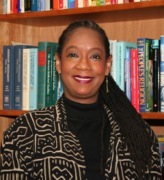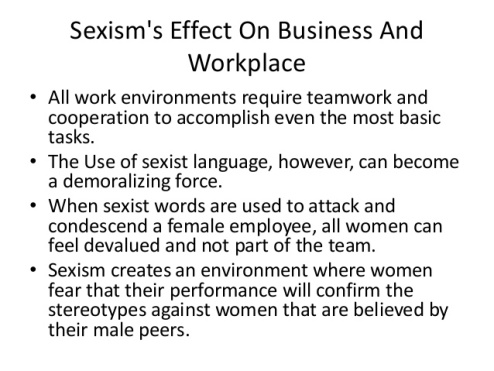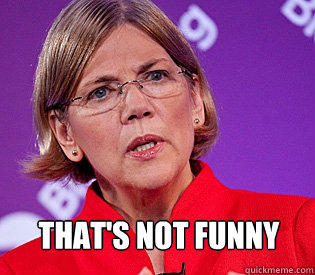 Our Women’s History Month focus now switches to gender inclusive language. Dr. Christine Wenderoth – Director of the Jesuit-Krauss-McCormick (JKM) Library in Hyde Park, on Chicago’s south side – gives a solid, simple history lesson as to the origins of gender inclusive language, as well as a rather potent illustration as to why it will always be “a thing” – at least until everyone finally appreciates it.
Our Women’s History Month focus now switches to gender inclusive language. Dr. Christine Wenderoth – Director of the Jesuit-Krauss-McCormick (JKM) Library in Hyde Park, on Chicago’s south side – gives a solid, simple history lesson as to the origins of gender inclusive language, as well as a rather potent illustration as to why it will always be “a thing” – at least until everyone finally appreciates it.
Rev. Dr. Linda E. Thomas – Professor of Theology and Anthropology, Chair of the LSTC’s Diversity Committee, Editor – “We Talk. We Listen.”
My undergraduate school [Oberlin College] was the first college in the world to admit women [1837] alongside men, so the first coeducational college. It is no surprise, therefore, that inclusive language was a part of my college experience, part of the requirements for academic assignments during my years there. All papers had to use gender inclusive language, or be penalized a full letter grade.

I graduated from Oberlin in 1971, 45 years ago. I mention that only to indicate that gender inclusive language is not a new thing. It is so not a new thing that it was the topic of the 1745 publication, A New Grammar by Anne Fisher [she, alas! advocated using “he, his, him” to stand for personal pronouns of all genders]. What may be new today is the struggle to get away from binary gender indications in all our language, but wrestling with language and the gender power it conveys has long been with us.

Yes, for us old timers, it can be demoralizing that gender exclusive language is “still a thing”.
Why does it matter?
Back in 1989, hymn writer Brian Wren in his What Language Shall I Borrow? God-Talk in Worship: A Male Response to Feminist Theology [NY: Crossroads Press, 1989] told us clearly why it matters:
If
Every naming of God
Is a borrowing from human experience,
And if
Language slants and angles
Our thinking and behavior,
And if
Our society
Makes qualities labeled “feminine”
Inferior to qualities labeled “masculine,”
Forming women and men
With identities steeped in these labelings,
In structures where men are still dominant
Though shaken
And women still subordinate
Though seeking emancipation…
Then it follows that
Using only male language
(“he,” “king,” “father”)
To name and praise God
Powerfully affects our encounter with God
And our thinking and behavior.
Wren, p. 1
Words control, words wield power; language, thought and action are inextricably connected and therefore language is always a political act. To speak and write in exclusively male language is, whether intended or not, an exercise of patriarchy, an exercise allowing men to keep holding the power, an exercise excluding women from that power. Contrary to Ms. Fisher’s 18th century recommendation, “he” means male. Psychological tests have shown again and again that the use of male language translates in people’s minds into images of male persons and culturally conditioned masculine “attributes”.

Inclusive language is not exclusively a matter of personal pronouns, of course—it’s about the power of all language to shape, to hurt, to control, and to encourage. And the power of language is still with us. Just this week in an article in Inside Higher Ed, it was reported that a respected listserve for scholars of [city and regional] planning, geography and related fields has been embroiled in a debate about and begun by a [supposed] joke posted by one of its senior participants.* Some participants objected to the sexist joke; other participants objected to the objections. 118 professors ultimately issued a joint statement and left the listserve, in large part because they “were as outraged over the reaction (or lack of reaction) to it [the joke] as by the original attempt at humor. While some members of the group were quick to condemn the joke, many others accused those of taking offense of overreacting and some defended the joke.” The statement of the 118 went on:
“All those who have signed below (and perhaps many more) have been truly astonished and disappointed by the overt contempt that has been launched by a vocal few at some of our colleagues who have been brave enough to call out sexism where they see it. It started with a sexist joke, but that wasn’t the worst of it. The defense of the joke, the hostility toward those who were offended, and the need to shut down the conversation by telling those objecting to the joke to leave the Listserv is unacceptable in a forum that is supposed to serve the planning community as a whole. We agree that [the listserve] has become an ‘old boys club,’ where most women, younger scholars and other marginalized groups are not, and perhaps never have been, welcome. We have essentially been shouted down.”

Our language keeps on betraying us. What is “just a joke” to some is just as clearly an indication that “most women, younger scholars and other marginalized groups are not, and perhaps never have been, welcome.” The call for respectful, inclusive speech and thought that has been issued and explained for over 45 years [and more!] has not yet “taken”. For so many of us, this call to be included in the conversation and in the very speech of public life is not something new and cutting edge.
It’s not something surprising. It’s not something radical. It is common sense, a signal of the speaker or writer’s attempt to be at least aware of issues of inclusion and exclusion.
This is why it’s so crushing to sit in a worship service [for example] and hear the same old patriarchal vocabulary that I heard in 1970, and then to hear the same old “oh, get over it” from people upset that I’m upset. We know from so many discourses—the current political debates, the Black Lives Matter movement, the pleas of trans people to honor their pronoun wishes—that words are not “just” words. Words are not something to “get over”. Language carries assumptions and power and history. The fact that 45 years after my first encounter with inclusive language it still hasn’t taken root is a sure signal that feminists and womanists still have so much gender work to do…and that the work is going to take a long time to come to fruition.

Dr. Christine Wenderoth joined the faculty of McCormick Theological Seminary in 2004 as Director of the JKM Library. She also serves as associate professor of ministry. The JKM Library houses one of the largest theological collections in the United States and is operated jointly by McCormick Theological Seminary and the Lutheran School of Theology at Chicago.
*(The joke goes like this: “Judy married Ted; they had 13 healthy children. Sadly Ted died. She married again, and she and Bob had seven more lovely children. Bob was tragically killed in a terrible car accident, 12 years later. Judy remarried a third time, and this time she and John had five more fine children. Judy finally died, after having 25 wonderful children. Standing before her coffin, the preacher thanked the Lord for this very loving woman and said, “Lord, they are finally together.” Ethel leaned over and quietly asked her best friend, Margaret, “Judy’s had three husbands and 25 children. What do you think he means by saying they’re finally together?” Margaret replied, “I think he means her legs!” As told by Scott Jaschik, “When a Joke Isn’t Funny”, Inside Higher Ed, February 29, 2016.)

I am “old school” on Inclusive Language and think that is it one of the most important commitments one can make for asserting equality, equity, and valuing all people in concrete theological language. If I call God “he,” then what am I saying about myself? If I am made in God’s image then God looks like me! :). It’s powerful to think and make such a statement! Male language (exclusive language) about God does not allow me to make this theological claim.
In addition, language hunts and language heals. I am always uncomfortable when we repond to prayer petitions with, “Hear our prayer, O Lord.” Why? I’m glad you asked! I believe it is priviledged language for those who can hear and inconsiderate of people who have hearing loss. My friend and colleague, Dr. Kathy Black at Claremont School of Theology, has been an advocate for people with hearing loss in worship. She is my role model for inclusive language when it comes to”hearing/hearing loss.” It’s very easy to repond to a prayer, “Receive, our pray, O God.” Can we consider this for worship at LSTC and othe places?
I also have problems with the word, “Lord.” But, I will talk about that in another response. Stay tuned. 🙂
Thank you Chris, for bring this issue to light again!
Linda Thomas
LikeLike
Pingback: We Talk. We Listen.